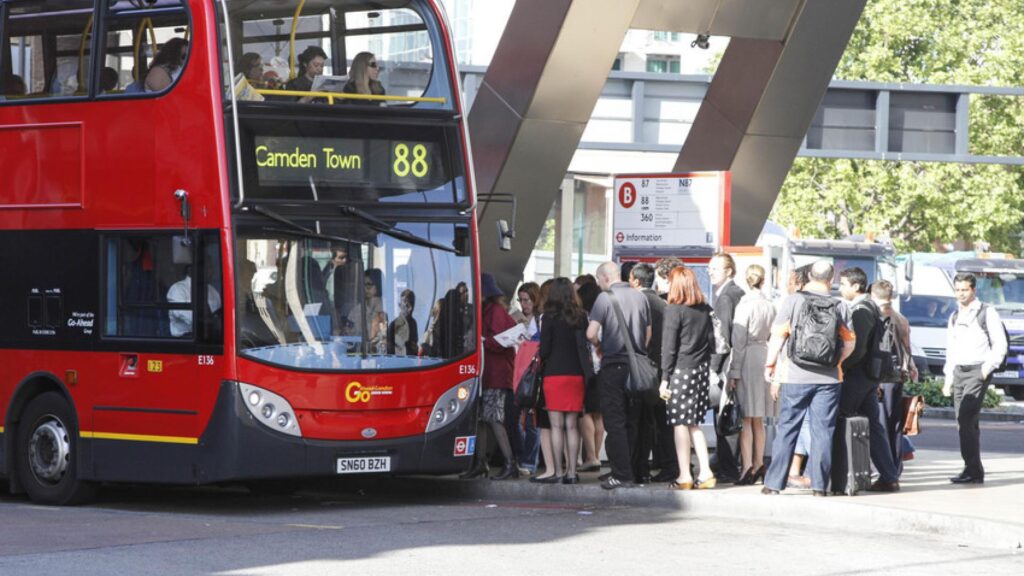Budgeting is a vital skill for college students to master as they navigate the challenges of campus life. Effective budgeting empowers students to take control of their finances, make informed spending decisions, and avoid unnecessary debt. By creating a budget, students can track their income and expenses, pinpoint areas of overspending, and prioritize their financial goals. According to a survey conducted by LendEDU, the average college student graduates with over $30,000 in student loan debt. This article will delve into intelligent ways to save money on campus, providing essential budgeting tips.
Table of Contents
- Look for Affordable Housing Options
- Access Discounted Books
- Utilizing Public Transportation or Carpooling
- Ideas for Better Usage of Public Transportation
- Exploring Free or Low-Cost Entertainment Options
- Look for Sources of Income
Look for Affordable Housing Options
Affordable housing is crucial for students as it significantly impacts their financial well-being. According to a report by Save the Student, housing expenses typically account for the most significant portion of a student’s budget. Students can reduce their financial stress and improve their overall college experience by finding affordable housing options. Here are some suggestions for this purpose:
- Explore university-owned accommodation
- Consider private student housing providers
- Look for flat-sharing opportunities
- Research local housing associations
- Utilize student accommodation forums and Facebook groups
- Consider commuting options
- Keep an eye on housing fairs and events
Access Discounted Books
Accessing discounted textbooks offers numerous benefits for students. It allows them to save significant money, reduce the financial burden of education, and access a broader range of study materials. This technique helps students in doing research for their university assignments, without spending money on the books. Also, consider the following suggestions as best budgeting tips for a similar purpose.
- Save money on essential course materials.
- Access a broader selection of textbooks.
- Purchase both new and used books at discounted prices.
- Explore online platforms for discounted e-books.
- Consider renting textbooks instead of buying them.
If you need academic services, students must ask professionals from affordable writing services to do my assignments. In other words, they must not waste their money in getting expensive writing assistance.

Utilizing Public Transportation or Carpooling
Utilizing public transportation or carpooling is a savvy strategy for students looking to maintain a budget. Public transportation offers cost-effective commuting options, reducing expenses related to owning and maintaining a vehicle. According to the American Public Transportation Association, utilizing public transportation instead of driving can save students an average of over $10,000 per year in transportation costs. Carpooling saves money on fuel and parking and promotes environmental sustainability. Here is how students can efficiently do their traveling.
Ideas for Better Usage of Public Transportation:
- Plan routes in advance to optimize travel time and minimize transfers.
- Take advantage of student discounts or monthly passes for reduced fares.
- Utilize travel apps or websites to track schedules and real-time updates.
- Use commuting time for productive activities, such as studying or reading.
- Join or create student carpooling groups to share rides and split costs.

Exploring Free or Low-Cost Entertainment Options
Who says entertainment has to break the bank? Plenty of excellent free or low-cost options can bring joy and fun into life without straining the budget. Check out these fantastic resources for affordable entertainment:
Local Libraries: Borrow books, movies, or even attend events and workshops and if you seek assignment help, look for credible and inexpensive services.
Community Centers: Discover art exhibitions, concerts, and recreational activities.
Online Streaming Platforms: Explore free trial periods or low-cost subscriptions for movies, TV shows, and music.
Parks and Nature Reserves: Enjoy outdoor activities like hiking, picnics, or bike rides.
Local Events: Attend the area’s fairs, festivals, and cultural celebrations.
Virtual Tours: Embark on virtual tours of museums, landmarks, and famous sites.
Look for Sources of Income
In order to maintain their budget, students often find themselves searching for additional sources of income. It enables them to cover their expenses and avoid financial strain. Here are some valuable ideas for students to find sources of income. With the help of these ideas, students can solve most of their financial problems.
- Seek employment opportunities on or off-campus that offer flexible hours to accommodate their academic schedules.
- Utilize skills in writing, graphic design, coding, or other fields to offer services on platforms like Upwork or Fiverr.
- Share their expertise in subjects they excel in by offering tutoring services to fellow students or online platforms.
- Participate in online surveys or complete micro-tasks on platforms like Amazon Mechanical Turk or Swagbucks.
- Offer babysitting or pet-sitting services to families or friends in need of assistance.
- Rent unused belongings, such as textbooks, electronics, or a spare room.
- Look for part-time positions or paid internships within the university or college campus.
- Start a blog post, YouTube channel, or social media account to create content and earn revenue through ads or sponsorships.
End Words
In conclusion, mastering the art of saving money on campus is crucial for college students. They can stretch their finances and maximize their college experience by implementing intelligent budgeting tips. Whether it is tracking their expenses, taking advantage of student discounts, or opting for affordable transportation options, every small step counts towards a brighter financial future. Students must remember that with careful planning and conscious spending, they can enjoy their college years while keeping their bank accounts in check.
Frequently Asked Questions
Q. How do you budget and save money as a college student?
A. Students who want to budget and save money must track their expenses and set a specific budget. Reducing discretionary expenses and taking advantage of students’ discounts from services like finance assignment writing services are other best tricks for saving money.
Q. What is the 50-20-30 rule that students must know?
A. The 50-20-30 rule is a budgeting guideline where 50% of income is allocated for needs, 20% for savings or debt repayment, and 30% for wants or discretionary spending. It helps students balance their finances effectively.
Q. How do you do budgeting as a student?
A. To budget effectively as a student, start by tracking the expenses and categorizing them. Determine the income, set financial goals, and allocate funds for necessities, savings, and leisure. Regularly review and adjust the budget to stay on track.
Q. What are the seven good budgeting tips?
A. Good budgeting involves the following seven steps. They must set financial goals, track income and expenses, create a budget plan, and categorize and prioritize expenses. Monitoring and adjusting the budget regularly and saving for emergencies and long-term goals are also helpful. They are, furthermore, reviewing and revising the budget as needed.



